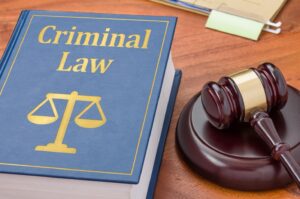An Overview of Criminal Fraud Charges
If you are facing a criminal charge, you should understand the nature of the charges from the government’s point of view. That way, you may be able to come up with a viable defense. Legal research or consultation with a criminal lawyer can help you understand the charges against you.
Below is an overview of criminal fraud charges that you should know if you are facing them.
Meaning of Fraud
Fraud is an intentional deception intended to rid someone of their rights or money for their own personal gain. Fraud exists in several forms, but all involve a few common elements. Below are the elements that a prosecutor must prove for a court to convict a person of fraud:
Fact Misrepresentation
The prosecution must prove that the defendant lied or misrepresented a fact. For example, a party who lies by saying that a software license requires a one-time purchase, whereas it requires regular subscription fees.
Intentional Act
The government must also prove that the defendant’s fact misrepresentation was intentional. The defendant must have known what they were telling the victim was a lie.
For example, a salesperson who knows that software use requires a subscription but markets it otherwise is fraudulent. However, the salesperson might escape the charges if the software manufacturer lied to them.
Reliance on Misrepresented Fact
Fraud only exists if the victim relied on the deception to do or omit the act that causes them injury, financial or otherwise. Consider a student who knows that software requires subscriptions, even though the salesperson claims otherwise. If the student still purchases the software, they cannot accuse the salesperson of fraud because they did not rely on that deception to buy the software.
Injury or Damages
Lastly, the prosecution must prove that the fraud victim suffered or would have suffered some injury or damages. The court might not consider a deception that doesn’t lead to tangible loss as fraud.
Consider an individual who convinces a homeowner that they have lost their home. The court might not consider this fraud if the homeowner never lost their home and wasn’t in danger of losing it. In this case, the deception cannot cause a tangible loss.
Examples of Criminal Fraud
Fraud occurs in several forms. Below are some examples:
Card Fraud
Credit or debit card fraud is a crime where the perpetrator steals the victim’s information and uses it to get funds from the victim. For example, the criminal may charge purchases on the victim’s card or use it to withdraw funds from the victim’s financial accounts.
Those who commit card fraud get their victim’s information in various ways. For example, they skim the details during authorized transactions, steal physical cards, or forge credit card information.
Telemarketing Fraud
Telemarketing fraud occurs when a criminal posing as a marketer contacts their victim and uses false marketing information to get the victim’s money. For example, a fraudster might lie to their victim about discounted software and trick the victim into releasing sensitive financial information. The perpetrator then uses the information to get the victim’s money.
Insurance Fraud
The last example is insurance fraud, where someone lies to their insurance company to receive benefits they do not deserve. The insurance company or another party loses money in the process.
Medicare fraud is another example of insurance fraud. In one version of this scheme, the fraudster unlawfully uses another person’s Medicare information to enjoy the insurance scheme’s benefits. The insurance company loses money since it pays for benefits it shouldn’t pay for.
Ensure you have a strong defense and avoid a conviction with the help of an attorney. Consult Carl L Britt, Jr Attorney At Law to help you understand and defend your case. We have over 40 years of legal experience and promise you aggressive representation.

